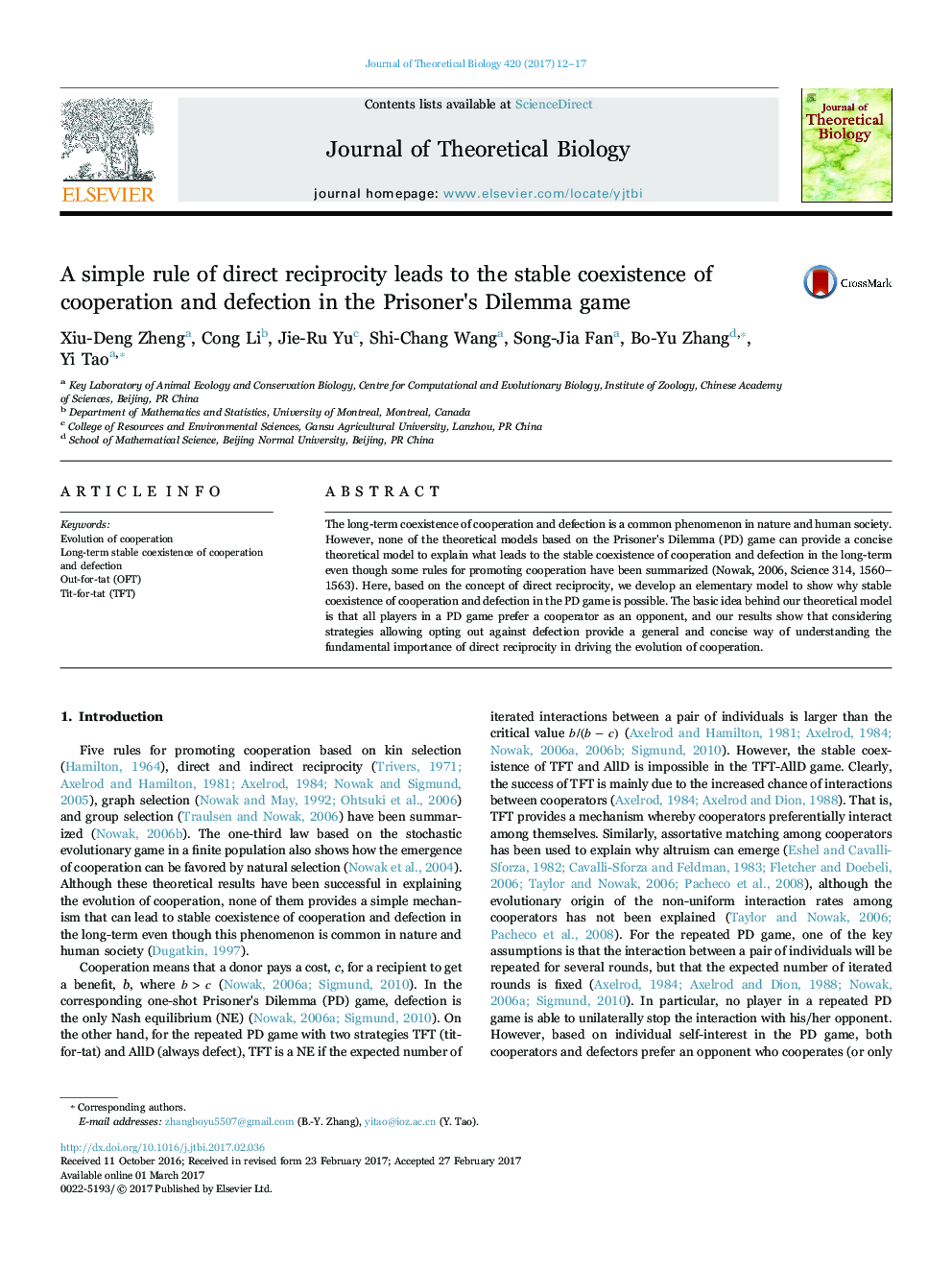| Article ID | Journal | Published Year | Pages | File Type |
|---|---|---|---|---|
| 5760039 | Journal of Theoretical Biology | 2017 | 6 Pages |
Abstract
The long-term coexistence of cooperation and defection is a common phenomenon in nature and human society. However, none of the theoretical models based on the Prisoner's Dilemma (PD) game can provide a concise theoretical model to explain what leads to the stable coexistence of cooperation and defection in the long-term even though some rules for promoting cooperation have been summarized (Nowak, 2006, Science 314, 1560-1563). Here, based on the concept of direct reciprocity, we develop an elementary model to show why stable coexistence of cooperation and defection in the PD game is possible. The basic idea behind our theoretical model is that all players in a PD game prefer a cooperator as an opponent, and our results show that considering strategies allowing opting out against defection provide a general and concise way of understanding the fundamental importance of direct reciprocity in driving the evolution of cooperation.
Keywords
Related Topics
Life Sciences
Agricultural and Biological Sciences
Agricultural and Biological Sciences (General)
Authors
Xiu-Deng Zheng, Cong Li, Jie-Ru Yu, Shi-Chang Wang, Song-Jia Fan, Bo-Yu Zhang, Yi Tao,
